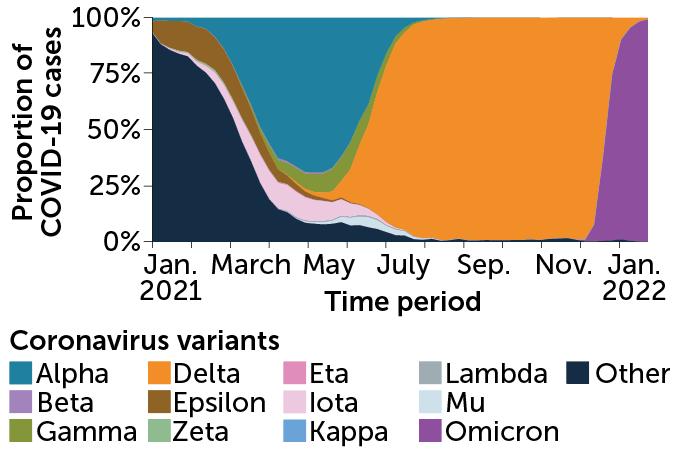Omicron crushed delta in the U.S. These numbers show just how fast it happened
The highly contagious coronavirus variant rose to U.S. dominance four times faster than delta

First identified in South Africa and Botswana in November 2021, the omicron coronavirus variant spread rapidly. It was detected in the United States December 1 and weeks later, estimates suggest it was already the dominant variant here.
Jane Khomi/Moment/Getty Images Plus








